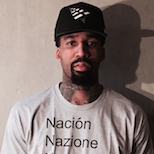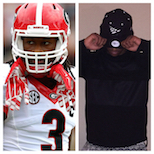NBA Rivals Unite
07.12.2012
SPORTS
Rivalries are what make sports truly unique. In the NBA, the rich history between players like Magic and Bird, Jordan and Ewing, Shaq and Kobe, and teams like the Boston Celtics and the Los Angeles Lakers to the Chicago Bulls and the New York Knicks, have kept us all tuned in for years. It was the impact of each of these matchups that indicates just how powerful, and necessary, rivalries are in the Association.
On Wednesday, the league-wide moratorium on signing free agents was lifted at midnight and teams began to wind down the frantic pursuit of the league’s top players. At the top of every GM’s list were two future first ballot Hall-of-Famers, Steve Nash and Ray Allen. Nash, 38, and Allen, 36, are both approaching the tail ends of their careers and the two have made it clear, that at this stage, they want to play for an immediate title contender. A week ago, Nash, a former two-time league MVP, decided to escape the desert heat of Phoenix for the cool ocean breeze and bright lights of Los Angeles. At the same time, Allen, the NBA’s all-time three-point King, made the decision to disband from the Boston Celtics’ Big Three to become a role player to the Miami Heat’s championship trio of LeBron James, Dwyane Wade and Chris Bosh. Both Nash and Allen’s decision were met with more criticism than cheers, mostly in part because the veterans went against tradition and decided to follow the new wave of white flag bearers to join forces with their most detested rivals.
Just two weeks ago, the 38-year-old Nash went on record to say there was no way he would ever join the Lakers. “The truth is I am a bit old-school,” Nash told ESPN radio in New York. “I think for me it would be hard to put on a Lakers jersey. That’s just what it is. You play against them so many times in the playoffs, and I just use them as an example with the utmost respect for them and their organization.” The Los Angeles Lakers and Phoenix Suns met in the postseason in 2006, 2007 and 2010, creating a team and player rivalry that ran deep to the core. Nash’s Suns won two-of-the-three series, in ’06 and ‘07; while Kobe and company went on to repeat as champions in 2010– eliminating the Suns in six games in the Western Conference Finals along the way. It was the last time Nash and the Suns were able to get that far in the playoffs. Although the teams hadn’t met in the postseason in a couple of years, in January, Kobe Bryant revealed how much he disliked Nash’s Suns. Now, the two Western Conference rivals are teammates in pursuit of a title. Isn’t that ironic?
Ray Allen is well aware of the backlash from the act that became official on Wednesday when he signed a three-year contract worth just over $9 million with the Miami Heat. The ten-time All-Star turned down a lucrative contract offered by Boston to join the Heat for less money. It wasn’t a slap in the face, but more of a payback for the Celtics using him as a trade chip the last two seasons. Fans were disappointed in the fact that Allen would sign with Boston’s main hurdle in the playoffs the last two years. This year, the Celtics were on the verge of shocking the sporting world by upsetting the Heat. That was until King James went into overdrive and finally lived up to his moniker and carried Miami to the championship. It was a beating that would have had Jordan in the gym the entire summer looking to exact revenge the following season. But as the old adage goes, “If you can’t beat them, join them.” And that’s what Ray Allen felt he needed to do. Joining Miami was a better alternative than losing to the Heat the remainder of his career.
While both decisions make perfect basketball sense, it’s still not what the legends of yesterday would have done. It’s understood that Nash wanted to stay on the West coast to be closer to his two kids, while having the opportunity to play alongside one of the greatest players to ever pick up a basketball. And Allen didn’t owe the Boston anything after they tried to trade him midseason. But what ever happened to the notion of competitive balance? Or, players trying to outduel one another as pride and reputations are on the line? Today’s NBA is not built off of rivalries. It’s structured off of camaraderie and the formation of super-teams.





